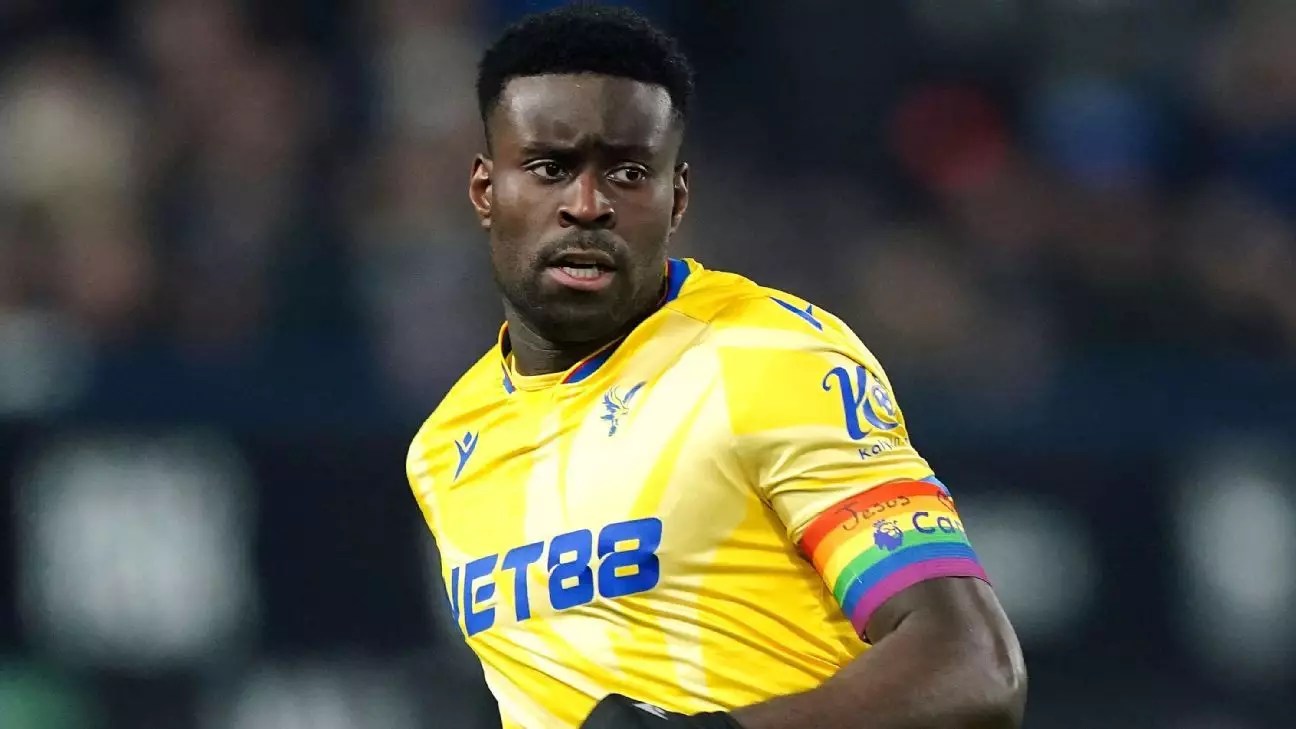In a notable display of support for the LGBTQ+ community, Premier League football clubs have been provided with rainbow-coloured captain’s armbands as part of the Stonewall Rainbow Laces campaign. This initiative aims to promote inclusivity and acceptance within the sport, creating a more welcoming environment for everyone, regardless of sexual orientation. Recently, however, a situation arose involving Crystal Palace defender Marc Guéhi, whose actions challenged the balance between personal beliefs and collective ideals.
During a recent match against Ipswich Town, Guéhi made headlines by inscribing the message “Jesus loves you” on his rainbow armband, even after being previously reminded by the Football Association (FA) about the prohibition of religious messages in player kit. Notably, this move came after Guéhi had previously escaped sanctions for a similar action—writing “I love Jesus” on his armband during a game against Newcastle United. This time, the FA reiterated the rules, which clearly state that religious messages are not allowed on items of clothing related to matches.
What makes this incident particularly intriguing is Guéhi’s devout Christian beliefs and how they intersect with the LGBTQ+ support symbolized by the armbands. His choice to communicate a religious message while visibly endorsing a campaign aimed at the LGBTQ+ community raises profound questions about the role of personal faith in public platforms. Furthermore, it challenges the principles of inclusivity that the campaign upholds.
Despite the potential for suspension or penalties related to Guéhi’s actions, the FA opted for a more measured approach. By merely issuing a reminder about compliance with kit regulations rather than pursuing disciplinary action, the FA underscored the need to navigate this tricky terrain carefully. It illustrates the complexities faced by sports organizations when personal beliefs clash with established guidelines and the values of inclusivity.
Additionally, Ipswich midfielder Sam Morsy chose not to don the rainbow armband during the matches, opting instead for the traditional black version, reflecting his identity as a practicing Muslim. Morsy’s choice was accepted as an individual matter rather than a violation of the kit regulations. This further complicates the debate surrounding player autonomy versus the collective responsibility of promoting inclusive practices within the sport.
The events surrounding Guéhi and Morsy pose important questions about how organizations should approach faith and beliefs in the context of sports. On one hand, there is a pressing need to promote inclusivity and provide support for marginalized communities. On the other hand, the right of individuals to express their personal beliefs must also be respected.
Ultimately, this situation reflects the ongoing struggle to create a harmonious environment in football where players feel free to express their convictions while also aligning with broader initiatives aimed at inclusion. The conversation needs to continue, focusing not only on regulations and compliance but also on developing a deeper understanding and respect for diverse perspectives, creating a truly inclusive football culture.


Leave a Reply